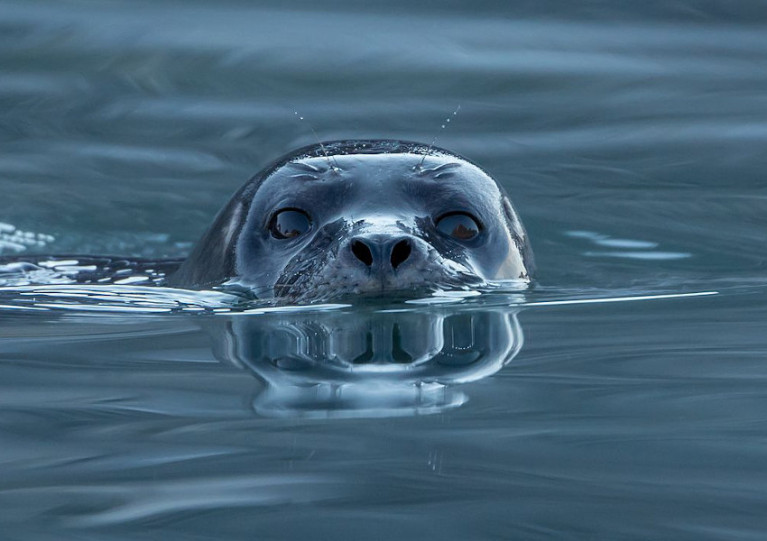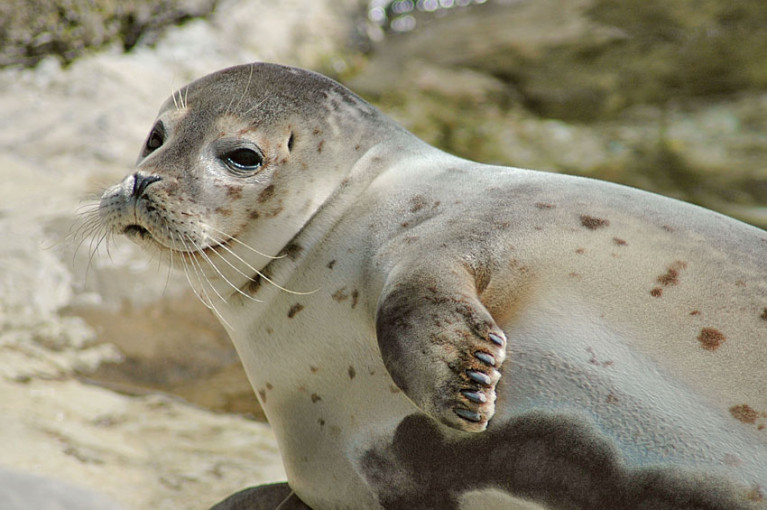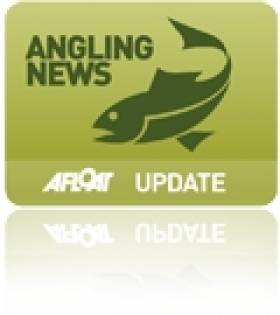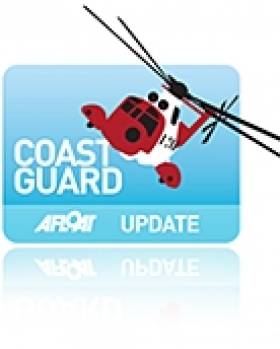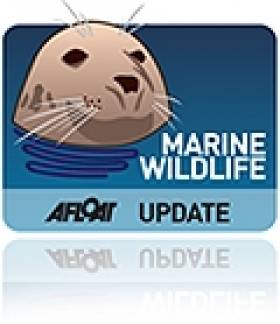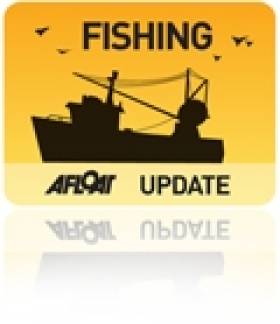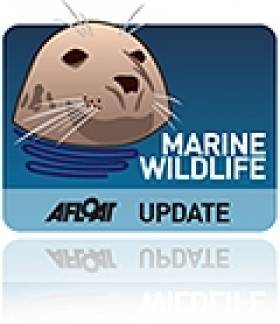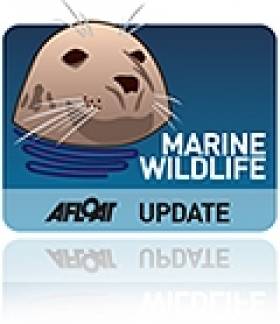Displaying items by tag: Co Kerry
Wildlife Service Probes Suspicions of Foul Play in Headless Seals Incident
The National Parks and Wildlife Service (NPWS) has confirmed it is investigating the recent discovery of beheaded seals on a Co Kerry beach.
But as TheJournal.ie reports, the situation may not be as sinister as might appear at first glance — with experts saying it’s not unusual for seal carcasses to wash ashore headless by various causes.
The most recent concern was prompted by a report from a woman walking on Banna beach in Co Kerry, where she described happening upon mutilated seal carcasses on the sand.
However, Melanie Croce of Seal Rescue Ireland in Courtown, Co Wexford says that while it does appear the seals in question were beheaded, “this is actually something that we’ve seen for many years and many other rescues see it as well worldwide.
“Unless you’re doing a post-mortem examination, it’s very difficult to determine the cause of death. But, you know, we can’t prove anything either way,” she added.
Seals have become a divisive issue in the South West in recent years.
Earlier this month the Government shot down proposals to allow the culling of seals by rifle in the vicinity of protected areas where local inshore fishermen claim their catch is being depleted by the appetites of seal colonies.
TheJournal.ie has much more on the story HERE.
Decapitated Seals Disturbing Sight for Locals On Co Kerry Beach
Local residents have been disturbed by the discovery of decapitated seals on a Co Kerry beach, as the Irish Examiner reports.
Speaking to Kerry Today on Radio Kerry, a local woman described coming upon the grisly scene on Banna beach where a number of seal carcasses lay mutilated.
And she suggested that the heads had been purposefully removed in incidents that were not the result of an animal attack.
The revelation will recall memories of similar seal beheadings in Dingle in the summer of 2012, for which the culprits were never found.
The Irish Examiner has more on the story HERE.
#MCIB - The families of two fishermen found dead at sea off the Skerries last April may never uncover the circumstances that led to their demise. But the official report into the incident indicated that the absence of lifejackets was a significant contributing factor.
Ronan Browne (26) and David Gilsenan (41) were reported missing on the evening of 1 April after failing to return from a trip tending to lobster pots.
Their vessel, Lady Linda, was found the following morning upturned in an oil slick off Clogherhead with no sign of the crew.
It wasn't until a week later that their bodies were discovered caught in the vessel's fishing gear some five miles east of Clogherhead, as previously reported on Afloat.ie.
Post-mortem results found that both men died from drowning, with Gilsenan also showing signs of hypothermia.
With no eyewitnesses to the incident, the report by the Marine Casualty Investigation Board (MCIB) indicated a number of possible causes from eqiupment malfunction or shifting of lobster pots on deck, to the wave height and weather conditions on the day, which were reportedly deteriorating when the boat left port.
It also said that Browne and Gilsenan "were lifelong friends, both men were experienced and qualified marine engineers in the fishing vessel industry. Both men were experienced in boat handling and fishing and had worked together on many occasions."
But the report emphasised the lack of personal flotation devices (PFDs) on board, and noted that emergency equipment was stored under the deck and not easily accessible.
The MCIB's recommendations include a review of the code of practice for fishing vessels under 15m to establish "revised stability critera" and ensuring that all boats are fitted with automatic radio beacons that deploy upon capsize.
In a separate incident, lack of proper maintenance led to an unlicenced boat taking on water off Co Kerry last August.
The Claire Buoyant was carrying one crew, five passengers and 21 sheep from Beginish Island to Ventry when the vessel began to lose stability.
Skipper Eoin Firtear - who the MCIB described as having "limited sea-going experience" - and his five passengers were rescued by passenger ferry. All sheep were jettisoned overboard, with 18 eventually recovered.
The report reminded that the carriage of livestock should only be undertaken in appropriately certified vessels.
- MCIB
- Marine Casualty Investigation Board
- report
- Lady Linda
- Clogherhead
- Ronan Browne
- David Gilsenan
- lobster pots
- Fishing
- drowning
- hypothermia
- missing
- malfunction
- wave height
- Weather
- lifejackets
- Personal Flotation Devices
- PFDs
- Code of Practice
- stability
- Radio
- beacon
- maintenance
- unlicenced
- Co Kerry
- Claire Buoyant
- Sheep
- Passengers
- Beginish Island
- Ventry
- Eoin Firtear
- Skipper
- Rescue
- Livestock
Angling and Marine Show a First for Ballybunion
#ANGLING - Top angling photographer and TV presenter Harry Gibney will be among the guests at the first Ballybunion Angling and Marine Show from 23-25 March.
According to The Kerryman, the show is the brainchild of local angler Mike Enright who has planned a mixture of competition and presentations from some of Europe's best known angling experts in the Co Kerry seaside town.
Among the events, Gibney will be sharing some of his top photography tips, while former long-distance fly champion Glenda Powell will present a fly fishing workshop. Other special guests include five-time world fly tying champion Gavin Hughes and celebrity chef Bryce Collins.
But the focus of the weekend is definitely on angling, with the Brian Martin Memrorial Cup set to be decided.
"Kerry has some of the finest angling facilities in the country yet it has never been promoted so we're hoping to change that," said Enright.
The Kerryman has more on the story HERE.
Search for Missing Kayaker to Continue in Kerry
#NEWS UPDATE - Breaking News reports that the search for a 38-year-old man who went kayaking near Cromane in Co Kerry in the early hours of yesterday will resume this morning.
The alarm was raised yesterday morning after the man - named locally as Nealie O'Connor, and the father of a two-month-old baby - failed to return from his lake kayaking trip.
Missing Bermuda Yacht Arrives Safely in Co Kerry
A yacht that was reported missing in the Atlantic between Bermuda and Ireland sailed safely into port in Co Kerry this afternoon.
As previously reported on Afloat.ie, the Golden Eagle has been at the centre of an air and sea search operation since failing to arrive at its expected destination of Crookhaven in Co Cork on 15 September.
The yacht - crewed by a 69-year-old Norwegian and a 60-year-old New Zealander - had been out of radio contact since leaving Bermuda in mid August.
But a spokesperson for the Irish Coast Guard has since revealed that the men intentionally turned off their handheld VHF radio to save battery power until they were close to port.
The boat dropped anchor in Portmagee, Co Kerry at 3pm this afternoon, reporting only minor damage to its sails and rigging due to adverse weather which slowed their progress.
More from RTE here.
Fin Whales Come Closer to Kerry Coast
Though they failed to track down the elusive humpback whales, IWDG members were recently treated to their first sighting of fin whales in Co Kerry's inshore waters.
With permission from the Haughey family to land on Inis Mhic Aoibhleáin - the most westerly point in Europe - as a vantage point, 20 members of the Irish Whale and Dolphin Group set out south towards the Scelligs following tell-tale blows.
Amid hundreds of dolphins and as many as 11 minke whales seen throughout the day, the first fin whale was found 10 miles south of the Blaskets.
Two more were spotted 4 miles northwest of Sceilig Mhichíl, both of which were biopsied.
"What we observed was spectacular activity in an area which appeared to be devoid of life just the week before," said the IWDG's Conor Ryan.
The IWDG has more on the story, including photos, HERE.
Fishing to be Reopened at Castlemaine Harbour
Minister for Natural Resources Pat Rabbitte has announced plans to reopen licensed commercial fishing in Castlemaine Harbour in Co Kerry, following the results of last year's pilot fishery.
“I am satisfied, based on scientific and fishery management advice... that it is safe to reopen this fishery under closely controlled conditions," said Minister Rabbitte. "The trial fishing conducted in the harbour last year establishes that this can be done without impinging on threatened stocks."
A statutory 30-day public consultation has now commenced on the required amendment to the Wild Salmon and Sea Trout Tagging Scheme 2011 to provide for the fishery's reopening.
"The consultation period will give those who disagree with that conclusion to put forward their views and I will pay close attention to what they say before reaching a final conclusion on the matter," the minister added.
Minister Rabbitte has also tasked Inland Fisheries Ireland with ensuring full enforcement of relevant quotas and conservation by-laws.
Kerry Fishermen Want Seal Cull
Kerry fishermen are calling for a cull of the local grey seal population over claims that they eat up to 10kg of fish a day, The Irish Times reports on marine animals.
Fishermen along the Kerry coast are arguing the the seals are "over-protected", are too great in number and are posing a threat to salmon conservation, as well as depleting stocks of hake and pollock.
Concerns are on the rise that seals will be culled illegally if there is no official intervention on the matter. However, the National Parks and Wildlife Service has ruled out any action.
Locals in the Blasket Islands have claimed that more than 1,200 seals inhabit the area. Research by the Seal Track programme showed only 400 seals in the Blaskets in 2003, down over 40% from 1998 numbers.
The Irish Times has more on the story HERE.
Three Seals Set For Release This Weekend
The Irish Seal Sanctuary (ISS) is gearing up for three seal releases this coming weekend.
On Saturday 5 February ISS volunteers in tandem with the Dingle Wildlife and Seal Sanctuary will release Rupert and Rosie back into the wild at Beal Ban Beach in Ballyferriter, Co Kerry.
The two grey seal pups were rescued from the Dun Chaoin area last November within days of each other, the male pup with several injuries. Both now rehabilitated, it's expected they will rejoin the grey seal colony just off the Dingle Peninsula.
Then on Sunday 6 February the ISS will release another grey seal pup, Mary, from Kilpatrick Beach in Castletown, Co Wexford.
For more details on these releases visit www.irishsealsanctuary.ie



























